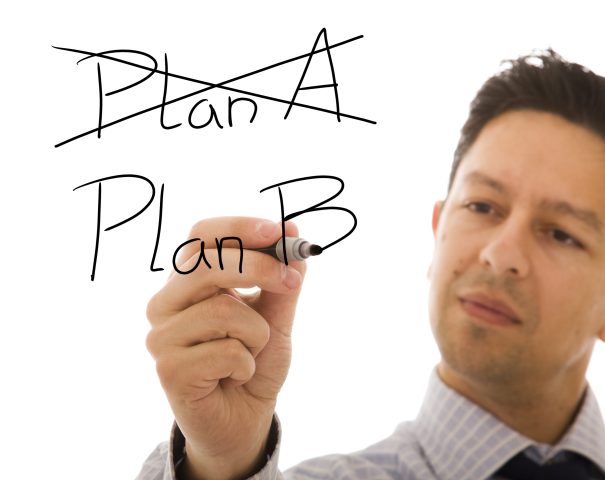In a rapidly evolving world filled with ceaseless distractions and elevated stakes, the ability to make clear and impactful decisions under pressure is increasingly crucial than any time in history. Regardless of whether you are managing a team, navigating personal challenges, or simply facing the daily choices of life, honing the art of smart decision-making can deeply impact your outcomes. The pressure of decisions can seem overwhelming, especially when time is tight, and stakes are considerable. However, with the appropriate techniques and mindset, you can boost your decision-making skills and approach even the toughest choices with confidence.
Comprehending the cognitive factors that influence our decisions is key for success. Many individuals struggle with decision fatigue, which can obscure judgment and lead to inferior choices. By applying proven techniques such as adopting decision-making frameworks and harnessing emotional intelligence, you can improve your clarity and confidence, particularly in ambiguous situations. This article seeks to explore different strategies—from balancing intuition with logic to cultivating daily habits that strengthen your decision-making abilities—helping you maneuver through the complexities of life's choices with skill and assurance.
Validated Methods for Smart Choice-Making
To enhance your decision making skills, start by learning the art of collecting pertinent information. Investing the time to explore and comprehend the options available can provide insight and reduce uncertainty. Leverage trustworthy sources and data to shape your selective processes, confirming that you are not forming decisions solely on intuition. Organized inquiry can lead to more educated outcomes, allowing you to evaluate the prospective benefits and risks effectively.
An additional essential technique is to create a choice-making framework that caters to your specific needs and circumstances. Models such as SWOT analysis, which assesses strengths, liabilities, opportunities, and dangers, can help clarify your options. By implementing a methodical approach, you create a repeatable process to guide your analyses, limiting the chances of rash or reactive responses that frequently lead to suboptimal outcomes.
Finally, nurturing EQ plays a vital role in intelligent decision making. Being aware of and controlling your affects, as well as comprehending the feelings of others, allows for a more balanced perspective. This awareness aids avoid impulsive decisions triggered by pressure or dread. By merging emotional intelligence with logical evaluation, you can reach a more complete view of the circumstance at hand, ultimately resulting in more confident and effective choices.
Tackling Obstacles in High-Pressure Situations

Taking decisions under pressure can be intimidating, often leading to impulsive decisions that may not reflect our optimal judgment. One key challenge in these scenarios is the psychological response caused by stress, which can obscure clarity. It’s crucial to identify these feelings and employ strategies such as profound breathing or visualizing a calm environment to lessen intense feelings. This intermission allows for a clearer assessment of the situation and fosters rational decision-making.
Furthermore critical challenge is the huge multitude of choices that can come with high-pressure situations. The phenomenon known as “overthinking” often happens when individuals find themselves weighing every possible alternative. To combat this, employing choice-making frameworks can streamline the process and hasten faster decisions. For Click for info , prioritizing the most important factors can focus options and reveal the best option.
Ultimately, the apprehension of making the wrong decision can freeze even the most seasoned decision-makers. Developing emotional is crucial in addressing this apprehension. By gaining awareness of oneself and understanding how feelings impact decisions, individuals can approach decisions with a more balanced perspective. Accepting errors as development chances rather than defeats cultivates a developmental mindset, enabling individuals to make decisive, knowledgeable decisions even in intense situations.
The Role of Intuition and Mindfulness
Instinct plays a crucial role in making decisions, particularly in high-pressure situations where there is limited. It is often described as a intuitive sense or an instinct that guides individuals toward a decision without the deliberate weighing of pros and cons. This automatic response can be informed by past experiences and accumulated knowledge, allowing for quick conclusions when consideration may not be possible. Understanding when to trust your intuition can enhance your ability to make efficient decisions, particularly in ambiguous environments.
Mindfulness complements intuition by fostering a state of awareness that encourages more lucid thinking. Being aware allows individuals to observe their thoughts and feelings impartially, creating space to consider options more carefully. This practice helps to reduce anxiety and stress, which can cloud decision-making and lead to rash or impulsive decisions. By cultivating mindfulness, you can enhance your self-awareness, enabling you to more clearly identify when to rely on your instincts and when additional analysis is necessary.
Combining instinct with awareness leads to a harmonious decision-making approach. It helps people to acknowledge their emotional responses while also staying open to logical thought. This balance allows for more self-assured and thoughtful choices, even in stressful situations. Training in both areas can enhance decision-making skills, helping to navigate challenging situations more successfully and improving overall outcomes, both in personal life and in professional life.
